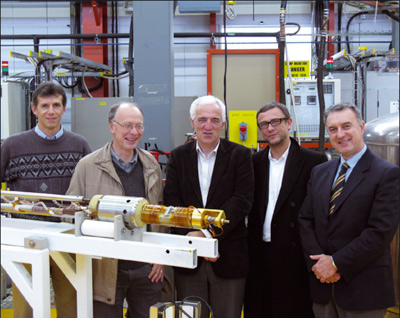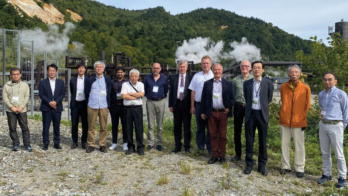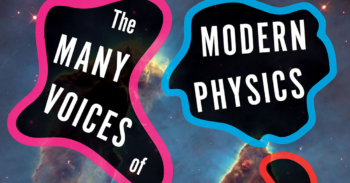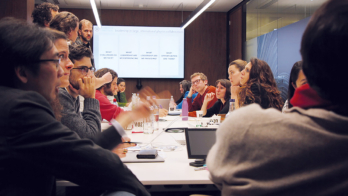
The fourth meeting of the Steering Committee of the CERN/ITER Collaboration Agreement took place at CERN on 19 November. It marked not only the end of a second year of successful collaboration between ITER and CERN on superconducting magnets and associated technologies but also the establishment of CERN as the ITER reference laboratory for superconducting strand testing for the next five years.
The implementation agreement for 2009 encompassed a variety of topics. These included expertise in stainless steel and welding, high-voltage engineering, the design of high-temperature superconductor current leads, and testing and consultancy in cryogenics and vacuum technology.
The main role of CERN as the ITER reference laboratory will be: to carry out yearly benchmarking of the acceptance test facilities at the six domestic agencies involved in superconducting strand production; to help in the training of the personnel involved in these tests around the world; and to carry out third-party inspection and expertise in case of problems during production. To this end, CERN will use the facilities that were set up for strand qualification for the LHC, but with an important modification: the upgrade of magnetic fields from 10 T to 15 T to properly test samples of niobium-tin (Nb3Sn) superconductors.
This programme has considerable synergy with the study for high-gradient quadrupoles in Nb3Sn that CERN is pursuing to prepare new technology for the LHC luminosity upgrade. Nb3Sn has a superior performance to the niobium-titanium alloy employed in the LHC. However, the brittleness of Nb3Sn and the need for high-temperature heat treatments mean that much R&D is still required. ITER will see the first large-scale use of Nb3Sn: some 400 tonnes of the conductor will be used for the toroidal field coils and the central solenoid.





